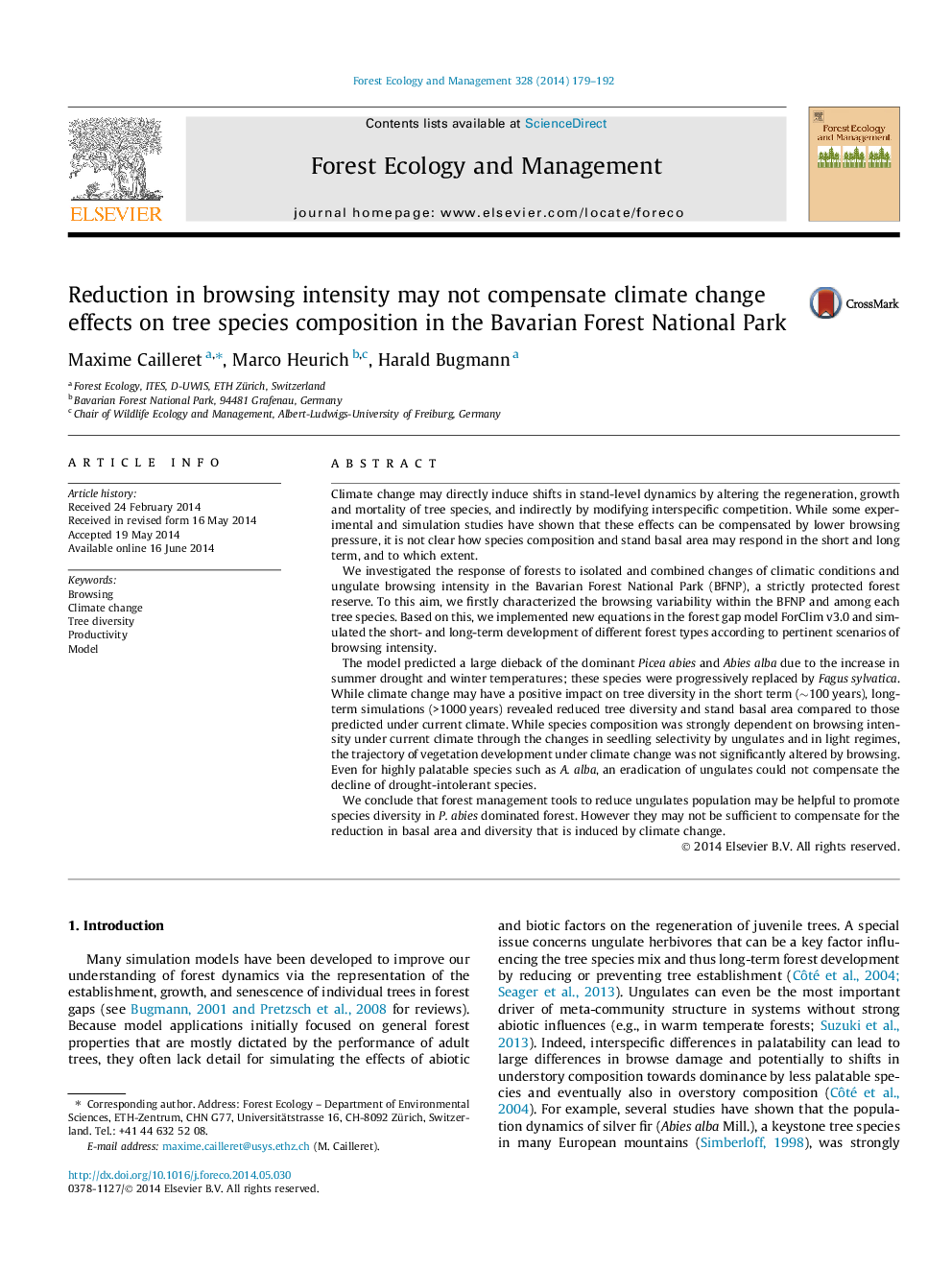| کد مقاله | کد نشریه | سال انتشار | مقاله انگلیسی | نسخه تمام متن |
|---|---|---|---|---|
| 86517 | 159194 | 2014 | 14 صفحه PDF | دانلود رایگان |
• We simulated forest response to changes in climatic conditions and browsing intensity.
• Species composition was dependent on browsing intensity under current climate.
• Vegetation development was not altered by browsing under climate change.
• Lower ungulates density may not compensate for the reduction in basal area due to climate change.
Climate change may directly induce shifts in stand-level dynamics by altering the regeneration, growth and mortality of tree species, and indirectly by modifying interspecific competition. While some experimental and simulation studies have shown that these effects can be compensated by lower browsing pressure, it is not clear how species composition and stand basal area may respond in the short and long term, and to which extent.We investigated the response of forests to isolated and combined changes of climatic conditions and ungulate browsing intensity in the Bavarian Forest National Park (BFNP), a strictly protected forest reserve. To this aim, we firstly characterized the browsing variability within the BFNP and among each tree species. Based on this, we implemented new equations in the forest gap model ForClim v3.0 and simulated the short- and long-term development of different forest types according to pertinent scenarios of browsing intensity.The model predicted a large dieback of the dominant Picea abies and Abies alba due to the increase in summer drought and winter temperatures; these species were progressively replaced by Fagus sylvatica. While climate change may have a positive impact on tree diversity in the short term (∼100 years), long-term simulations (>1000 years) revealed reduced tree diversity and stand basal area compared to those predicted under current climate. While species composition was strongly dependent on browsing intensity under current climate through the changes in seedling selectivity by ungulates and in light regimes, the trajectory of vegetation development under climate change was not significantly altered by browsing. Even for highly palatable species such as A. alba, an eradication of ungulates could not compensate the decline of drought-intolerant species.We conclude that forest management tools to reduce ungulates population may be helpful to promote species diversity in P. abies dominated forest. However they may not be sufficient to compensate for the reduction in basal area and diversity that is induced by climate change.
Journal: Forest Ecology and Management - Volume 328, 15 September 2014, Pages 179–192
